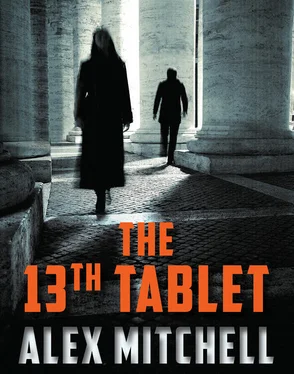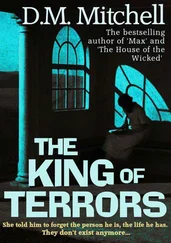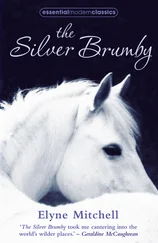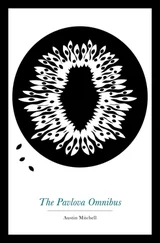‘Jack is in charge of an irrigation project in a small village outside Mosul,’ explained Professor Almeini.
‘You’re American? It must be dangerous for you working on the outskirts of Mosul these days.’
‘No more than working in downtown Mosul I guess,’ he answered, smiling at her.
‘Point taken,’ she smiled back at him.
‘People need water, especially in wartime,’ he explained as if carrying out this kind of project while the war raged on was perfectly normal.
‘Jack and I are working together on an aspect of his project and I thought you might be able to give him a hand,’ Professor Almeini said.
‘Sounds interesting. I didn’t read anything about a departmental irrigation project?’
Jack answered immediately, ‘Oh, it’s nothing like that. I’ve got funding from a number of NGOs to bring water to this village and make it as self-sufficient as possible. I’m an irrigation specialist of sorts. And, until I ran into the Prof here, I was a little stuck.’
‘How’s that?’ she asked.
The professor smiled at them, ‘Mina, Jack, I need to get back to my office. I’m so glad you’ve met.’ Looking at Mina, he added ‘Don’t forget we have a publication committee meeting this afternoon.’
‘Of course not, Professor. See you there.’
Mina turned to Jack, ‘So, Jack, have a seat and tell me all about how you met Professor Almeini.’
She was doing her best to be pleasant, but she was aware that her body language was a little awkward, always a sign that she was attracted to a man.
‘I met the Prof through a mutual friend, a hydrologist in Baghdad. To be honest, I was a little nervous when I first met him but we started chatting, and before I knew it, we were talking shop.’
She smiled, ‘He does tend to have that effect on people.’
‘I came to him with questions about local qanats , you know those underground water canalisations. They’re quite common in arid or semi-arid climates. Thousands of them are still in use in Iran and Afghanistan, and some since the Middle Ages. They carry water for dozens of miles without losing much through evaporation. But I couldn’t find any around the village where I work. He suggested looking for ancient ones, going back to the time of King Darius.’
‘You’re kidding, right? Did he forget to mention that King Darius lived 2,500 years ago?’
‘I know. It sounded insane at first but you know, irrigation specialists all over the world, and especially those working in developing countries, often investigate how things were done in ancient times.’
Mina thought about it and had to agree with him. Knowledge of water systems had not progressed that much over the last thousand years. All it took was keen observation of the water table, underground water and gravity over a long period of time. She had read somewhere about a qanat in Iran, in the city of Gonabad, which still provided drinking and agricultural water, 2700 years later. It was over 30 miles long.
‘I’m totally under-funded and have little time to carry out my project’ Jack continued. ‘Although Mosul is built on the west bank of the Tigris and it’s the major river in the region, we couldn’t afford to set up a secure network all the way to the river. The Prof showed me some maps of the region’s archaeologically excavated qanats and two of them happen to pass very close to the village I’m working in. He felt sure that if I found at least one of them, and could somehow follow its path, maybe I would find the underground water source, which this qanat used to tap into.’
Mina looked horrified. ‘You want to use an ancient qanat to bring water to the village?’
Jack burst out laughing. ‘No, I think I’d run into trouble with sanitary officials! If I could find that water source, I would lay pipes and a filtering system, follow the same track and bring at least one line of water supply to the village.’
‘OK. I could give you a hand on the archaeological side of things if you’re interested.’
‘I’m very interested.’
‘Great! I have some time to spare. Let’s go down to the archive.’
They went down to the basement, into a small room which held the departmental map archive.
‘Most of these maps are unpublished. As you can imagine, with the current state of affairs, there are more pressing needs.’
‘I can. I’m also surprised the basement wasn’t looted.’
’I know. It was seriously messed up though. We’ve spent months putting some order in the archive. The students have helped us tremendously. Where is the village?’
‘About 30 miles west of the city,’ he answered.
‘What’s it called?’
‘Al-Bayaty Ninewa’ he answered.
Mina started rummaging through the piles of maps, and pulled out a few.
‘Here you are,’ she said, pointing her finger at a dotted line on the map. ‘There’s the beginning of the qanat . And look! There seems to be a small pocket of underground water. Now, if we superimpose the first map…here’s the village. Where did you find the qanat ?’
‘Roughly here’ he said, pointing at a spot on the map.
‘You’re only about a mile and a half from the water pocket,’ she said triumphantly.
‘That’s amazing. Can I have a photocopy of this map?’
‘Of course. Just mention the help you got from the department to whoever funded you.’
As they walked back up to the main reception room, she asked him ‘So Jack, you’re an irrigation specialist?’
‘Of sorts. I’m an engineer, with an interest in irrigation.’
‘Your project strikes me more as a humanitarian one than the sort of job you’d normally go for with your expertise.’
A wave of sadness seemed to pass over his face.
‘I… The village really needs it, and many more villages do, too,’ he answered. ‘We should exchange numbers, if that’s alright with you, Mina,’ he said politely.
‘Of course. Here’s my card.’
‘I don’t have one, but I’ll just write down my contact details the old fashioned way.’
‘An engineer without a business card?’ she teased.
‘We simply don’t have enough funds to publish such drivel!’
The head of department was fuming. He could not believe a woman was telling him what his department should or should not publish, ‘With both departments running on half our usual staff we need to focus on what is most pressing. Even a tourist such as yourself should understand the difference between primary and secondary concerns,’ he concluded.
Mina tried to fit in another word, but Professor Almeini cut her short. He turned to the head of department, ‘Some books of a decidedly theoretical nature may have to wait until the more pressing archaeological reports are published. But we must be aware of the current changes in thought processes in our field, or…’ his gaze hardened as he looked at his adversary, ‘we may lose track complete of what we’re supposed to pursue as scholars. Don’t you think?’
‘Of course Professor, of course.’ The diminutive head of department was a mediocre scholar but an astute politician. ‘I think this is as good a time as any to conclude this meeting. I will see you all in three months time. My secretary will send out a reminder two weeks before the meeting.’
He stood up, ignoring Mina and said goodbye to his colleagues. Mina had not felt like a woman for quite some time and it felt good to be recognised as one again, even in a negative context. When she first arrived in Mosul she had expected to be relegated to some horrid basement office and that being the only woman in the department, no-one would speak to her. A friend working in Pakistan had told her that every time there was a conference or committee meeting, the female scholars went to a different room from the men. But things could not have been more different. She wondered at first if she enjoyed her special treatment because of her connection with Columbia University, or her being half-American, but after a while she understood that being a woman was irrelevant to most scholars around her. She was a scholar herself, a third gender of sorts. Of course to some chauvinists like the head of department, there was no such thing as a third gender. She was a woman, nothing more, and nothing could be less.
Читать дальше












